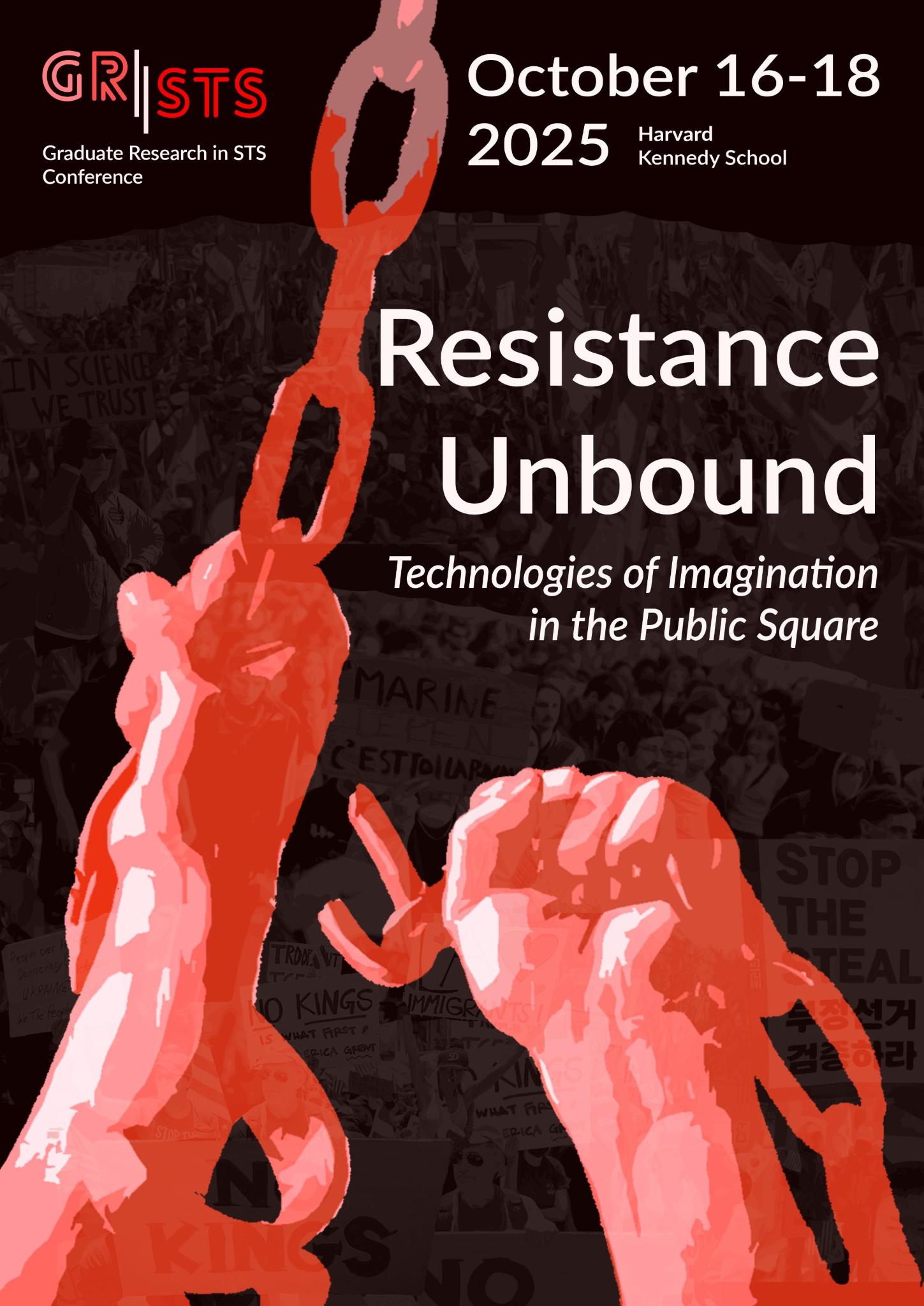Program on Science, Technology and Society at HarvardHarvard Kennedy School of Government | Harvard University |
|||||||
|
|
Resistance Unbound: Technologies of Imagination in the Public SquareOctober 16-18, 2025, AbstractGRiSTS 2025: Around the world, rupture and resistance seem to have taken over from the orderly routines of democracy. Slogans such as No Kings, Stand Up for Science, Je suis Marine (I am Marine), 스탑 더 스틸 (Stop the Steal), and Bharat Jodo (Unite India) challenge ruling authorities—while implicitly imagining different states of the world and ways in which lives should be lived. For STS scholars, such moments of rupture signal simultaneous breakdowns in shared knowledge and social order. Whether through moves to make some lives matter more or to make entire countries “great” and “healthy” again, advocates for change are asserting ideas of legitimate expertise, good citizenship, and accountable governance. Science and technology are inseparable from these notions of how to make, or remake, good societies. Public health interventions constrain civil liberties and civic duties, digital transformations and green investments promise equitable futures, and government spending cuts aim to demote particular forms of knowledge and public benefit. Increasingly fraught disputes in the public square demand deeper reflection from STS scholars about the epistemic and political norms that bind ruling authorities to the people. Amidst moves to dismantle, defund, and challenge once taken-for-granted institutions, the 6th GRiSTS conference invites applicants to explore how actors envision and contest what makes for the right forms of knowledge and collective life. We welcome proposals that engage with questions such as: What knowledge and expertise do citizens—and their rulers—draw on to identify transgressions and injustices? How do calls for resistance reflect imaginaries of stable order, and, correspondingly, contest the legitimacy of existing institutions (e.g., courts, universities, technology companies)? To the extent that such institutions are seen as custodians of knowledge or justice, what forms of delegation and deference underwrite their authority, and what accounts for their vulnerability or loss of trust vis-à-vis their clients or publics? Please email gristsconference@gmail.com with any questions and visit gristsconference.wordpress.com/grists-2025 to register and learn more. |
||||||
